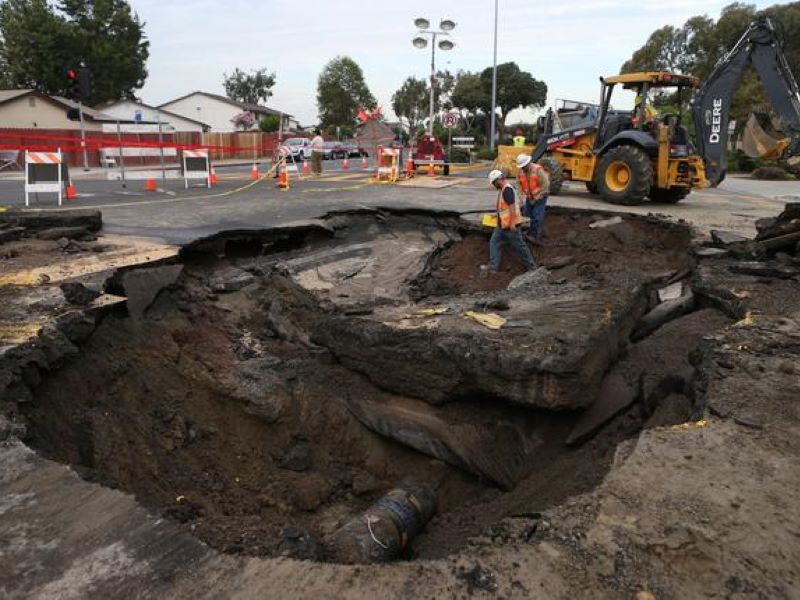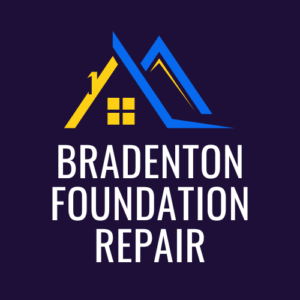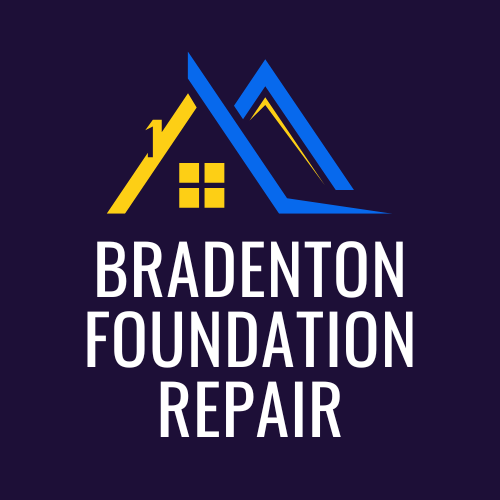Sinkhole Remediation in Bradenton, FL
For sinkhole remediation services in Bradenton, FL, trust Bradenton Foundation Repair. With years of experience, we specialize in tailored solutions for sinkhole issues. Our skilled team uses advanced techniques to restore stability and safety efficiently. Choose us for reliable sinkhole remediation services.
- Financing Option
- Lifetime Warranty
- Free Estimates
- Upfront Pricing
See Why Our Customers From Bradenton Loves Us!

About Bradenton Foundation Repair
At Bradenton Foundation Repair, we’re deeply committed to delivering unparalleled foundation repair services to the residents and businesses of Bradenton, FL. As a locally-owned and operated company, our pride lies in our strong ties to the community we serve. With over 35 years of industry experience, we’ve solidified our reputation as leaders in delivering top-tier services for both residential and commercial properties.
As a locally owned and operated business, we intimately understand the unique challenges faced by properties in our area, enabling us to provide tailored solutions that address the specific needs of our clients. Our team of skilled professionals is dedicated to upholding the highest standards of craftsmanship, reliability, and customer service, ensuring that every project is completed with precision and excellence. When you choose Bradenton Foundation Repair, you’re choosing expertise, reliability, and unparalleled dedication to your satisfaction.
Services We Offer:
What is Sinkhole Remediation?
Sinkhole remediation refers to the process of stabilizing and repairing sinkholes to prevent further collapse and damage to properties. Sinkholes are natural depressions or cavities that form in the ground due to the dissolution of underlying limestone or other soluble rocks. Sinkhole remediation typically involves filling the voids beneath the surface, reinforcing the surrounding soil, and restoring the stability of the affected area.

Reasons Why Sinkholes Form
Sinkholes develop due to a combination of geological, environmental, and human-related factors:
Karst Terrain
Sinkholes are often prevalent in regions with karst topography, characterized by soluble rocks like limestone, gypsum, or salt beneath the surface. Over time, water dissolves these rocks, creating underground voids that eventually collapse, leading to sinkhole formation.
Heavy Rainfall
Excessive rainfall can saturate the soil, increasing groundwater levels and accelerating erosion processes. This can weaken the integrity of underground rock formations, causing caverns or voids to collapse and resulting in sinkholes.
Human Activities
Certain human interventions, such as mining, construction, or excessive groundwater extraction, can disrupt the natural equilibrium of underground structures. These activities may accelerate the erosion of soluble rocks and contribute to the formation of sinkholes.
Leaking Sewer and Water Lines
Underground leaks from sewer or water lines can erode the surrounding soil, creating voids beneath the surface. Over time, these voids can expand and lead to the collapse of the overlying soil layers, triggering sinkhole formation.

Ways to Prevent the Need for Sinkhole Remediation
Preventing sinkhole formation requires proactive measures to address underlying causes and minimize risk factors. Here are some strategies to consider:
- Conduct Regular Property Inspections: Regular inspections of your property can help identify early warning signs of sinkhole formation, such as depressions, cracks, or unusual soil subsidence. By detecting these issues early on, you can take timely action to prevent further deterioration and potential sinkhole development.
- Maintain Proper Drainage Around the Property: Adequate drainage is essential for preventing water accumulation and soil erosion, which are common precursors to sinkhole formation. Ensure that gutters, downspouts, and drainage systems are functioning effectively to divert water away from the property and minimize the risk of soil destabilization.
- Address Plumbing Leaks Promptly: Underground leaks from sewer or water lines can contribute to soil erosion and the formation of voids beneath the surface, increasing the risk of sinkhole development. Promptly repair any plumbing leaks to prevent water infiltration and mitigate the potential for sinkhole formation.
- Monitor Vegetation for Signs of Stress or Decline: Unusual changes in vegetation, such as wilting, yellowing leaves, or sudden die-off, can indicate underlying soil instability or the presence of underground voids. Regularly inspect trees, shrubs, and other vegetation on your property for signs of stress or decline, and consult with a professional if you suspect sinkhole-related issues.
- Seek Professional Guidance for Landscaping and Construction Projects: When planning landscaping or construction projects on your property, consult with experienced professionals who are familiar with local geological conditions and sinkhole risks. They can provide valuable insights and recommendations for mitigating sinkhole hazards and implementing preventive measures to safeguard your property.
By adopting these preventive measures and remaining vigilant for signs of sinkhole formation, property owners can minimize the likelihood of sinkhole-related damage and protect their investments in the long term.
Services Included in Sinkhole Remediation
Sinkhole remediation involves a comprehensive approach to address the underlying causes and mitigate the risks associated with sinkhole formation. Here are some key services typically included in sinkhole remediation:
- Sinkhole Investigation and Assessment: Experienced professionals conduct thorough investigations to assess the extent of sinkhole-related damage and identify potential risk factors. This involves geological surveys, ground-penetrating radar (GPR) scans, and other specialized techniques to accurately evaluate the underlying conditions.
- Soil Stabilization and Compaction: Soil stabilization techniques are employed to enhance the strength and integrity of the soil surrounding the sinkhole. This may include soil compaction, grouting, or the injection of stabilizing agents to minimize further subsidence and prevent future sinkhole formation.
- Grouting and Void Filling: Grouting and void filling are crucial aspects of sinkhole remediation, involving the injection of specialized materials into underground voids to fill them and provide structural support. This process helps stabilize the soil and prevent further collapse, restoring the stability of the affected area.
- Foundation Repair and Reinforcement: Sinkhole damage can compromise the structural integrity of foundations and buildings. Foundation repair and reinforcement services are essential to restore stability and prevent further structural damage. This may involve underpinning, pier installation, or other techniques to strengthen the foundation and ensure structural stability.
- Structural Restoration and Landscaping: Once the sinkhole remediation process is complete, structural restoration and landscaping efforts may be necessary to repair any damage to buildings, infrastructure, or landscaping features. This may include repairs to walls, driveways, and other affected structures, as well as the restoration of landscaping elements to enhance the aesthetics and functionality of the property.
Additionally, ongoing monitoring and maintenance may be recommended to ensure the long-term stability and safety of the property following sinkhole remediation. By addressing the underlying causes of sinkhole formation and implementing appropriate remedial measures, property owners can effectively mitigate the risks associated with sinkholes and protect their investments.
Alternatives for Sinkhole Remediation
Sinkhole remediation often requires a tailored approach based on the specific characteristics of the sinkhole and surrounding geological conditions. Here are some alternative methods commonly used for sinkhole remediation:
- Micro-Piling and Underpinning: Micro-piling involves the installation of small-diameter piles or piers into the ground to provide additional support and stability to structures affected by sinkholes. Underpinning techniques may also be employed to strengthen existing foundations and prevent further settlement.
- Chemical Stabilization Treatments: Chemical stabilization treatments involve the injection of chemical agents into the ground to alter the properties of the soil and enhance its stability. These treatments can help mitigate the effects of sinkhole formation and prevent further subsidence.
- Geotechnical Engineering Solutions: Geotechnical engineering solutions encompass a range of techniques designed to address soil and foundation issues associated with sinkholes. This may include slope stabilization measures, reinforcement of soil layers, and the implementation of specialized foundation designs to mitigate sinkhole risks.
- Monitoring and Maintenance Programs: In addition to remedial measures, ongoing monitoring and maintenance programs are essential for ensuring the long-term stability and safety of sinkhole-affected properties. Regular inspections, instrumentation monitoring, and preventive maintenance can help detect early warning signs of sinkhole activity and prevent potential hazards.
Each of these alternatives offers unique advantages and may be selected based on factors such as the severity of the sinkhole, site-specific conditions, and budgetary considerations. By working closely with experienced geotechnical engineers and sinkhole remediation specialists, property owners can identify the most suitable remedial options to effectively address sinkhole risks and protect their investments.
Searching for Sinkhole Remediation Near Me? Call Us Today!
Experiencing signs of sinkhole damage in Bradenton, FL? Reach out to Bradenton Foundation Repair for prompt and professional remediation services. Our experienced team is equipped to assess your situation and deliver reliable solutions to address sinkhole issues efficiently. Restore stability and safety to your property – contact us today for expert sinkhole remediation services in Bradenton and nearby areas.
Frequently Asked Questions (FAQs)
Frequently Asked Questions About Bradenton Sinkhole Remediation
The cost of sinkhole remediation can vary significantly depending on factors such as the size and depth of the sinkhole, the extent of damage to the property, and the chosen remediation method. It’s best to schedule a consultation with a qualified sinkhole remediation specialist to assess the situation and provide an accurate cost estimate for your specific needs.
Warning signs of a sinkhole include depressions or holes in the ground, cracks in walls or foundations, sinking or tilting structures, uneven floors, and sudden ponding of water where it previously drained away.
While sinkhole remediation can address existing sinkhole issues, it may not necessarily prevent future sinkhole formation. However, implementing proper drainage solutions, conducting regular property inspections, and addressing any geological or environmental factors contributing to sinkhole formation can help minimize the risk of future occurrences.
Sinkhole remediation efforts typically focus on stabilizing the ground and restoring the affected area, which can help mitigate environmental concerns such as erosion, groundwater contamination, or habitat disruption. However, it’s essential to work with experienced professionals who follow best practices to minimize environmental impacts during remediation processes.
Areas We Serve in Bradenton Florida

- Point Pleasant
- Palma Sola Park
- Wares Creek
- Ballard Park
- Covenant Way
- Azalea Park
- Citrus Meadows
